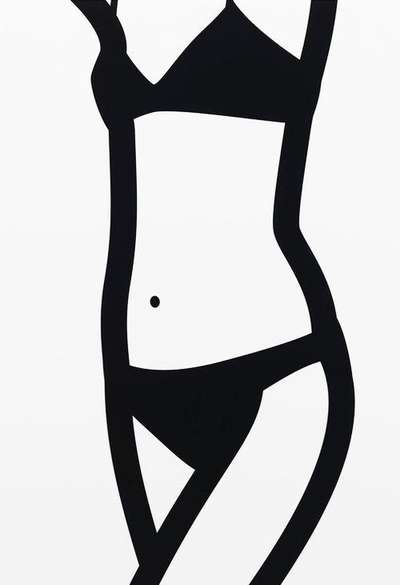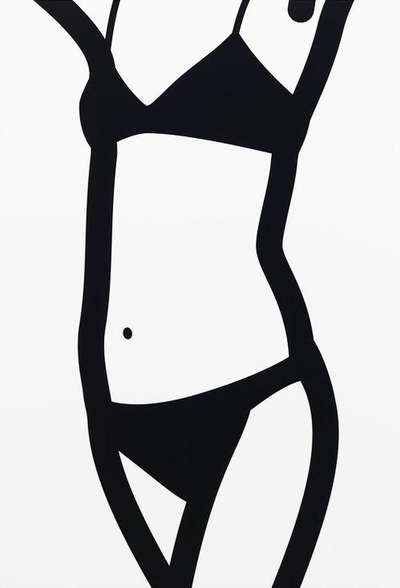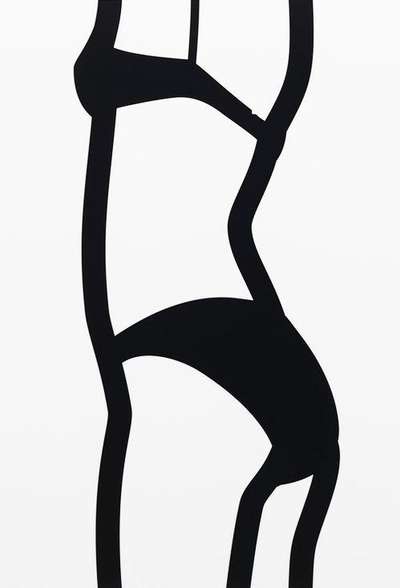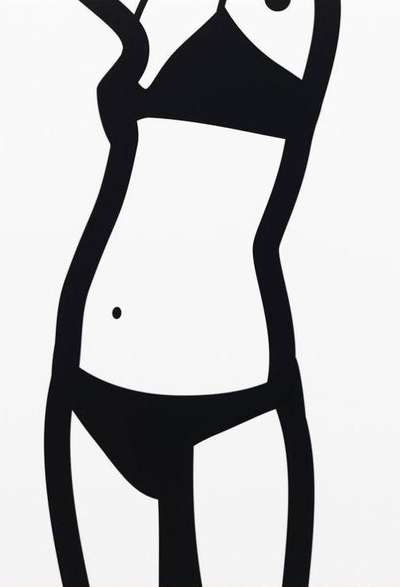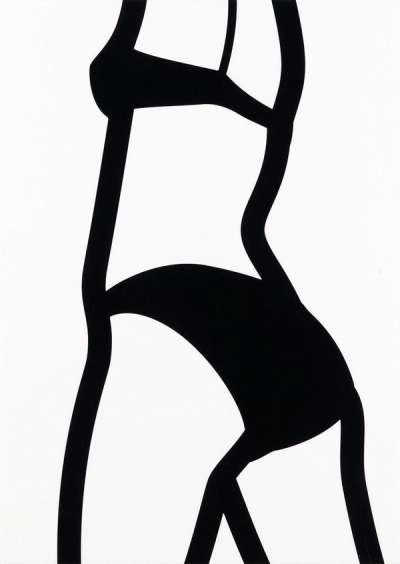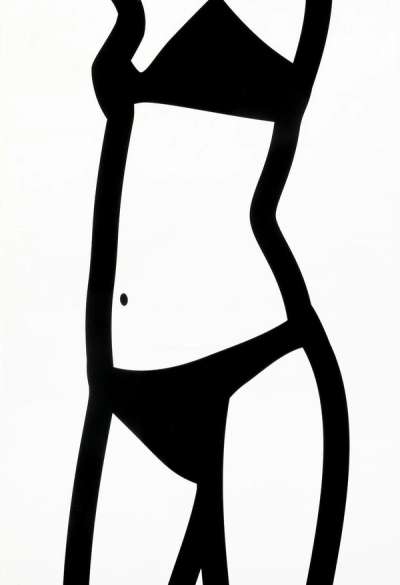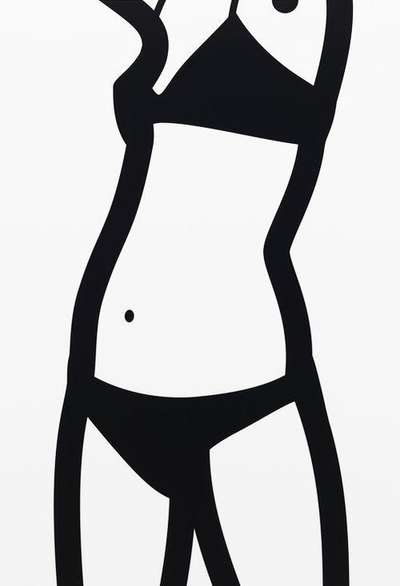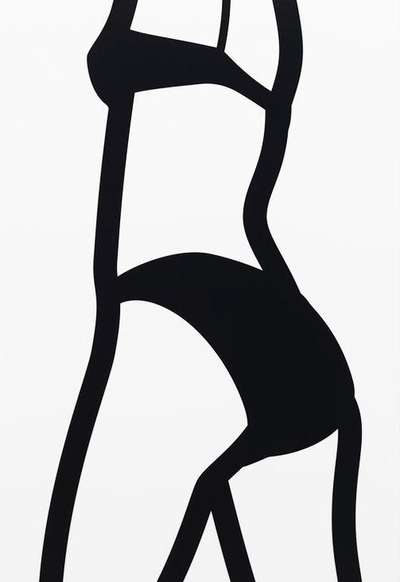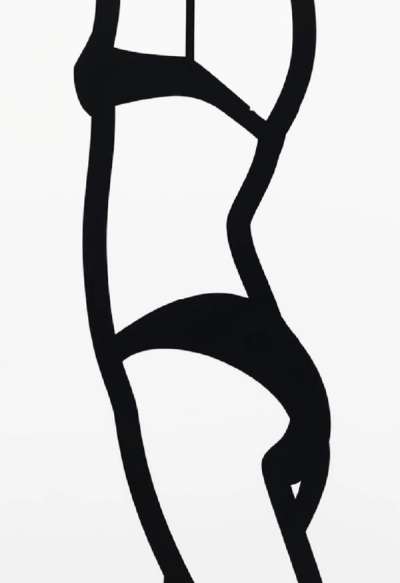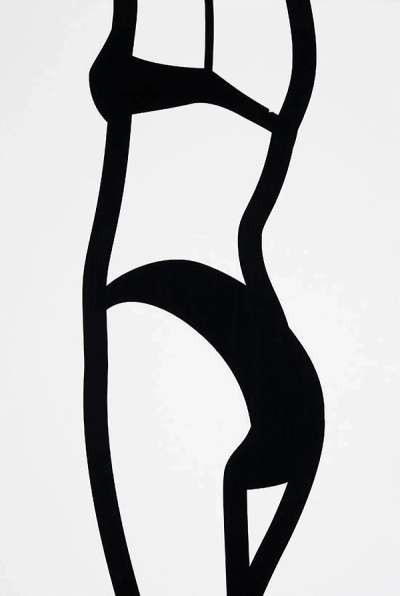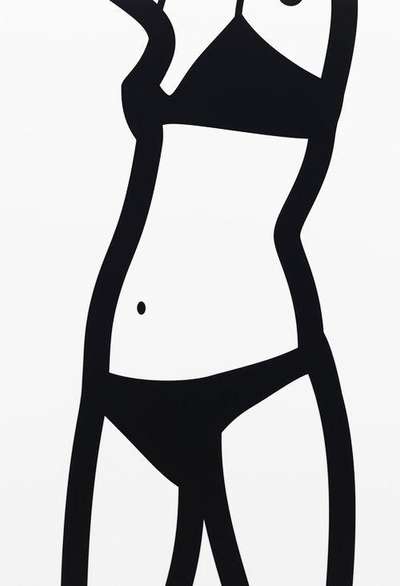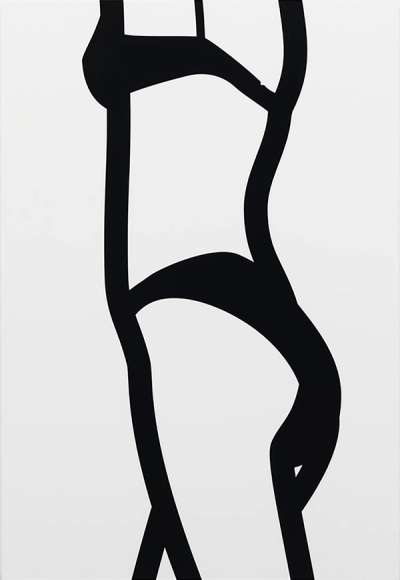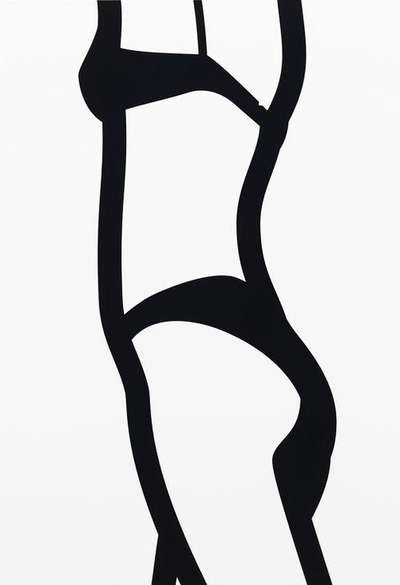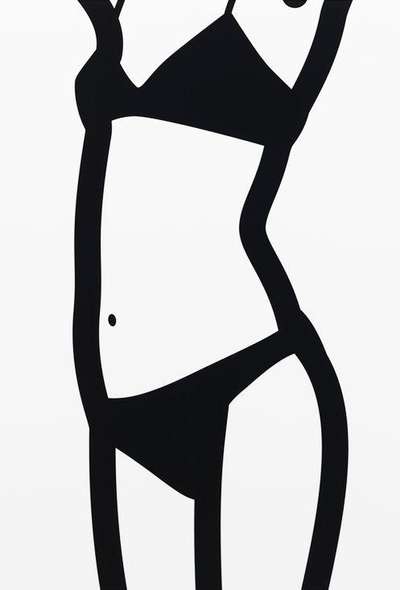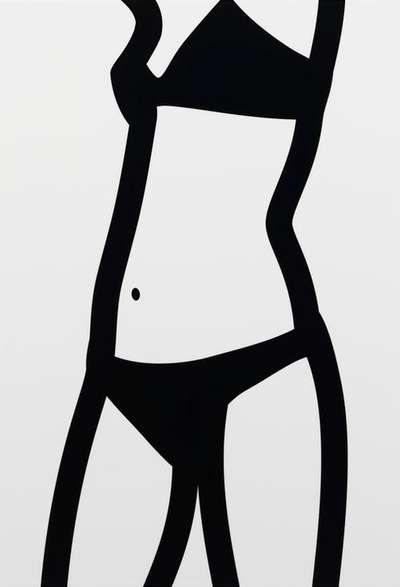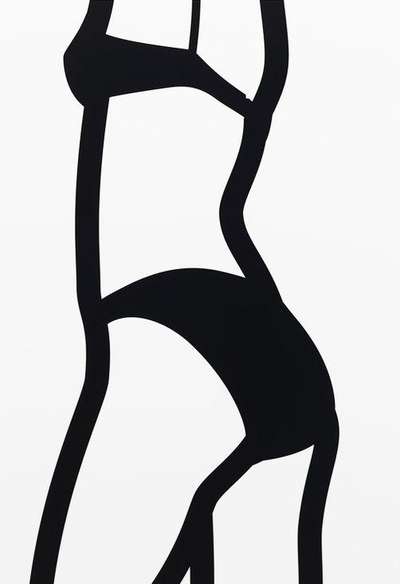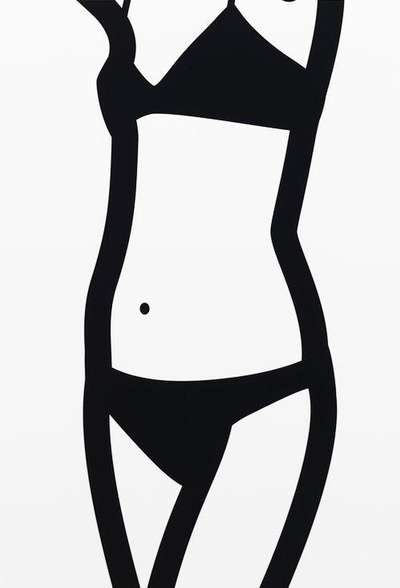
Watching Suzanne (front) 10

Watching Suzanne (front) 10
Signed Mixed Media
Julian Opie
Price data unavailable
AAGR (5 years) This estimate blends recent public auction records with our own private sale data and network demand.
There aren't enough data points on this work for a comprehensive result. Please speak to a specialist by making an enquiry.
Medium: Mixed Media
Edition size: 25
Year: 2006
Size: H 83cm x W 57cm
Signed: Yes
Format: Signed Mixed Media
TradingFloor
Track this artwork in realtime
Watch artwork, manage valuations, track your portfolio and return against your collection
Meaning & Analysis
Watching Suzanne (front) 10 is a print from Julian Opie’s Watching Suzanne series from 2006 that shows a dramatically cropped image of a woman’s torso, depicted in thick, black lines. The figure is shown to arch her back and arms lifted above her head, with the composition cutting off her arms and bottom half of her legs.
This series of prints is representative of Opie’s fascination with both movement and the human body. Reducing the human figure to the minimal elements by which it can be represented, this image is highly abstract. This is indicative of Opie’s desire to create a syntax of signs from the human form, retaining a basic form but including small details that reveal something unique about the model.
As one of 20 images of the figure, Watching Suzanne (front) 10, when considered within the series as a whole, forms part of an animation made up of still images. Opie shows the figure moving her hips from side to side then turning to face away from the viewer. Through his graphic visual language, Opie uses movement as a form of realism and as a means to differentiate between the people that he depicts throughout his oeuvre.
Julian Opie, born in 1958, dances through the contemporary art scene with a distinctive digital allure. A trailblazer of the 1980s New British Sculpture movement, Opie's work is a highly stylised blend of Pop Art and minimalism which navigates the intersection of technology and visual expression. From his early experiments with computer-generated art to his iconic portraits and animated installations, Opie's work exudes a captivating simplicity. His signature style, marked by bold lines and reduced forms, is internationally recognisable and has made him a key player in British contemporary art.
